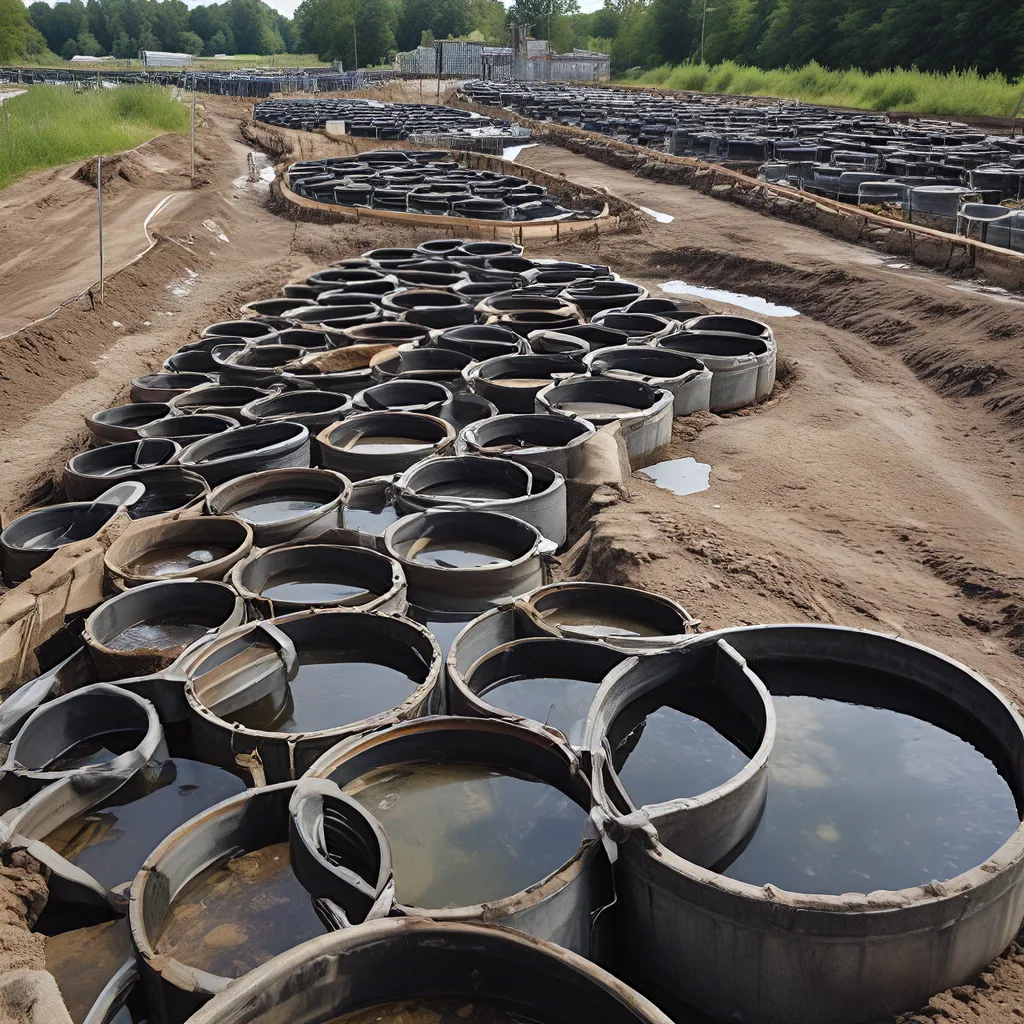
Embracing the Power of Nudges: How Behavioral Economics Can Transform Wastewater Habits
As an environmentally conscious citizen, I’ve always been fascinated by the world of wastewater treatment. It’s a topic that often flies under the radar, but its importance cannot be overstated. After all, the way we manage our wastewater has a direct impact on the health of our communities and the vitality of our shared natural resources.
Recently, I stumbled upon some intriguing research at the intersection of wastewater treatment and behavioral economics, and let me tell you, it’s a game-changer. Behavioral economics, a field that explores how psychological factors influence our decision-making, has the potential to revolutionize the way we approach wastewater management.
Emerging studies suggest that by understanding the cognitive biases and social norms that shape our behaviors, we can design “nudges” – subtle interventions that gently steer us towards more responsible wastewater practices. And the results are nothing short of remarkable.
Uncovering the Behavioral Quirks that Drive Wastewater Habits
Have you ever wondered why some people are so diligent about properly disposing of household chemicals, while others seem blissfully unaware of the consequences? Or why some neighborhoods have higher rates of water conservation compared to their neighbors? The answer, my friends, lies in the fascinating world of behavioral economics.
Cognitive biases, those sneaky mental shortcuts we all use, play a significant role in our wastewater-related decisions. For instance, the status quo bias – our tendency to stick with the familiar – can make us resistant to adopting new water-saving technologies or changing our flushing habits. And the optimism bias, where we believe we’re immune to the negative consequences of our actions, can lead us to underestimate the impact of our wastewater habits.
But it’s not just individual biases at play. Social norms – the unwritten rules that govern our behavior – also have a profound influence. Research has shown that when people perceive their neighbors to be more environmentally conscious, they’re more likely to adopt similar practices, like reducing water usage or properly disposing of hazardous materials.
Harnessing the Power of Nudges: Real-World Examples
So, how can we leverage these behavioral insights to improve wastewater management? Enter the concept of “nudges” – subtle interventions that guide us towards more desirable outcomes without restricting our freedom of choice.
One fascinating example comes from a study conducted in a small town in the Midwest. Researchers found that by simply providing residents with personalized feedback on their water consumption compared to their neighbors, they were able to reduce household water use by up to 5%. The power of social comparison, it seems, is a strong motivator for change.
But the nudges don’t stop there. Imagine walking into your local hardware store and seeing a prominent display highlighting the environmental benefits of purchasing eco-friendly cleaning products. This visual cue, combined with strategic product placement, can subtly influence our purchasing decisions and steer us towards more sustainable choices.
And let’s not forget the role of default options. By making water-efficient appliances or proper medication disposal the default choice, we can harness the power of the status quo bias to drive lasting behavioral changes. After all, it’s much easier to stick with the default than to actively opt-out.
Embracing the Future of Wastewater Management
As I delve deeper into this fascinating intersection of wastewater treatment and behavioral economics, I can’t help but feel a sense of excitement and optimism. The potential to transform our wastewater habits through the strategic use of nudges is truly remarkable.
Imagine a future where every flush, every load of laundry, and every trip to the hardware store is an opportunity to make a positive impact on our shared water resources. Where social norms and cognitive biases work in our favor, rather than against us. Where responsible wastewater practices become the new normal, not the exception.
Of course, this future doesn’t come without its challenges. Implementing these behavioral interventions requires careful research, testing, and collaboration between policymakers, wastewater treatment providers, and the community. But I’m confident that with the right approach, we can overcome these hurdles and create a more sustainable, water-conscious world.
At Alpha Wastewater, we’re committed to exploring the power of nudges and incorporating behavioral insights into our wastewater treatment services. By working together with our customers and the broader community, we believe we can inspire a wave of responsible wastewater practices that will ripple through our neighborhoods and beyond.
So, what are you waiting for? Let’s dive in and discover the hidden potential of wastewater treatment and behavioral economics. The future of our water resources is in our hands, and with a little nudge in the right direction, we can create the change we want to see.